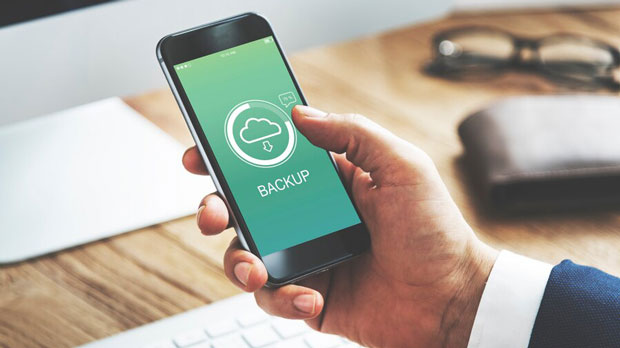In today’s digital age, the flexibility and coverage capabilities of proxies are critical for businesses and individuals aiming to enhance their online privacy, bypass geographical restrictions, and optimize their internet speed. Among the numerous proxy options available, PYPROXY and Extratorrent CC Proxy stand out due to their unique features and flexibility. This article will delve into the wireless proxy coverage of both services, comparing their strengths, weaknesses, and practical applications, to determine which one offers better flexibility for various use cases. Introduction to Wireless Proxy CoverageWireless proxies act as intermediaries between a user's device and the internet, masking their IP address and providing anonymity while browsing. When it comes to proxy services, flexibility refers to how easily the service can adapt to different requirements, such as geographic location, device compatibility, and network configurations. In this comparison, PyProxy and Extratorrent CC Proxy represent two distinct approaches to wireless proxy solutions.PyProxy is a popular choice for users looking for advanced anonymity and versatility, often favored by developers and tech enthusiasts for its customizable settings and ease of integration. On the other hand, Extratorrent CC Proxy is known for its simplicity and effectiveness in circumventing geographical restrictions, particularly in streaming content. Both proxies have their own merits and drawbacks, and the true test lies in understanding their wireless proxy coverage capabilities. PyProxy: A Detailed Overview Flexibility in ConfigurationPyProxy stands out due to its high level of configurability. This proxy service allows users to easily modify various settings, such as proxy types, locations, and protocols. Whether you need to route traffic through specific regions or choose a particular protocol for enhanced security, PyProxy provides the tools to do so. This flexibility makes it an excellent choice for users with technical expertise or those requiring a custom proxy setup. Geographical CoverageOne of PyProxy’s key advantages is its ability to cover a wide range of geographical locations. By providing access to servers across multiple countries, PyProxy allows users to bypass geographical restrictions and access content that may be unavailable in their region. This feature is particularly beneficial for businesses looking to test how their websites perform in different countries or for users who want to access geo-restricted media content. Device CompatibilityPyProxy supports a wide range of devices, making it versatile in terms of usage. It can be easily configured on desktop computers, laptops, and mobile devices, offering users the ability to access the internet securely and anonymously, regardless of the platform. This cross-device support ensures that users are not limited in their proxy usage, whether they are at home, on the go, or working from different devices. Extratorrent CC Proxy: A Detailed Overview Simple Setup and UsageExtratorrent CC Proxy is designed with simplicity in mind. Unlike PyProxy, which requires a certain level of technical expertise, Extratorrent CC Proxy is a plug-and-play solution. It is ideal for users who want a straightforward approach to proxy services without needing to worry about complex configurations. For those looking for ease of use, Extratorrent CC Proxy is a practical choice. Geographical FlexibilityExtratorrent CC Proxy excels in its ability to bypass geographical restrictions, making it highly effective for streaming services and accessing region-locked content. While it may not have the same degree of customizable location options as PyProxy, it is still a reliable tool for users looking to access content from specific regions without encountering restrictions. Device Compatibility and SupportSimilar to PyProxy, Extratorrent CC Proxy supports multiple devices, including desktops, laptops, and mobile platforms. However, its user interface is more streamlined and less customizable, making it less ideal for users who need detailed configuration options. Its simplicity, however, means that even users with limited technical knowledge can easily set it up and start using it almost immediately. Comparison of Wireless Proxy Coverage: Flexibility and Performance Customizability vs. Ease of UseOne of the primary differences between PyProxy and Extratorrent CC Proxy is the level of customization available. PyProxy offers extensive configuration options, allowing users to fine-tune their proxy settings for specific needs, such as selecting particular protocols or adjusting geographical settings. This makes it a powerful tool for users who need granular control over their proxy connections.In contrast, Extratorrent CC Proxy prioritizes simplicity. The setup process is straightforward, making it a better choice for users who are not as technically inclined or who prefer a no-fuss solution. While it may lack the advanced features of PyProxy, its ease of use can be seen as a major advantage for non-technical users or those who need a quick solution to access restricted content. Geographical CoverageWhen it comes to bypassing geographical restrictions, both proxies perform well. However, PyProxy offers a wider range of server locations, which allows users to access content from a broader spectrum of regions. This makes it a better option for users who require more control over their server location or for businesses conducting international testing.Extratorrent CC Proxy, on the other hand, provides reliable access to region-locked content, especially for streaming services. While it may not cover as many locations as PyProxy, its performance in circumventing geographical restrictions is still solid, particularly for entertainment and media consumption. Speed and PerformanceBoth PyProxy and Extratorrent CC Proxy deliver reliable performance, though PyProxy may experience slightly slower speeds due to its higher customization options and the use of different routing protocols. For users who prioritize speed and reliability, Extratorrent CC Proxy tends to offer better overall performance, as its simpler setup reduces the chances of performance degradation. Which Proxy Is More Flexible?In terms of flexibility, PyProxy is the clear winner. Its ability to offer detailed customizations, multiple geographical locations, and advanced configuration settings makes it more adaptable to a variety of needs, whether for personal use, business testing, or advanced security requirements. The downside, however, is that PyProxy may require more technical knowledge to fully utilize its capabilities.Extratorrent CC Proxy, while not as flexible as PyProxy, excels in its ease of use and effectiveness in accessing geo-restricted content. It is a great option for users who want a simple, reliable solution without the need for complex configurations.Both PyProxy and Extratorrent CC Proxy offer distinct advantages, depending on the user's needs. If flexibility, customizability, and geographical coverage are your primary concerns, PyProxy is the better choice. However, if you prefer a simple, user-friendly proxy solution for bypassing restrictions and ensuring smooth streaming experiences, Extratorrent CC Proxy is an excellent option. Ultimately, the best proxy for you will depend on your specific requirements, technical expertise, and intended use case.
Nov 04, 2025



































































